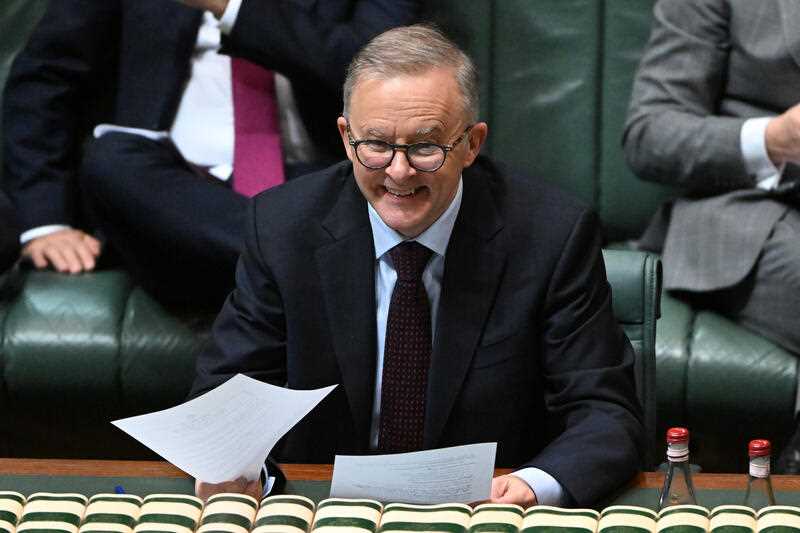New laws to raise Australia’s carbon emissions cut targets have cleared their first hurdle after passing the federal parliament’s lower house.
Liberal MP Bridget Archer was the only opposition member to vote with the government to pass the laws 89 votes to 55.
The Tasmanian MP said her community wanted action on climate change and it was important she use her vote to achieve this.
The laws set a carbon emissions cut target of 43 per cent on 2005 levels by 2030 and net zero emissions by 2050.
The 2030 commitment is a step up from the former coalition government’s unlegislated 26 to 28 per cent target, while there is bipartisan support for the 2050 target.
Independent MP Zali Steggall said the “next step” of Australia’s response to climate change had to be phasing out oil, coal, and gas.
She and other independents told reporters in Canberra they wanted to see greater cooperation with the government, but praised the approach Labor had taken.
“We’re still seeing in question time old-style politics play out,” Ms Steggall said.
“I don’t think it impresses many of us and it certainly doesn’t impress the Australian public.”
Climate Change Minister Chris Bowen declared the passage of the bill “a good day for Australia” and thanked the crossbenchers for working collaboratively with the government.
“Renewable energy is the cheapest form of energy, renewable energy is the key to reducing emissions and seizing the jobs opportunity that is the climate emergency,” he told parliament on Thursday.
Following consultations with the Greens, the government agreed to ensure the emissions target could only go up in future, with a mechanism in place to increase its ambition.
There will also be greater transparency and strengthened requirements on the Climate Change Authority, the body charged with advising on climate targets and policies.
Multiple amendments proposed by independent MPs were supported by the government, including for regional Australia to be explicitly considered in new laws.
The coalition did not support the amendment moved by independent MP Helen Haines to ensure the authority considers economic, employment and social benefits for rural and regional Australia.
The government also agreed to ensure the bill clearly states its intention is to drive climate action and is linked to science.
But the government and opposition voted against amendments to lift the emissions reduction target to 75 per cent by 2030 and net zero by 2035 proposed by the Greens and independent MP Andrew Wilkie.
The bill is being assessed by a Senate inquiry which is due to report on August 31, after which it will be debated and is expected to pass with the help of the Greens and one upper house crossbencher.
Greens senator Mehreen Faruqi said her party had helped improve the bill.
“We went into the process in good faith, always with the intention of improving this bill, which was really weak,” she told ABC radio.
“But let’s be clear – coal and gas will blow this target pretty quickly. And that fight will continue.”
ACT independent senator David Pocock said the 43 per cent target enshrined in the legislation was not high enough, but having certainty was important.
Senator Pocock said he would not be “rubber stamping” the bill until it was properly assessed.
“My job is to work with the crossbench, work with the government, to ensure that whatever we do legislate come September does have integrity,” he said.
By Maeve Bannister and Andrew Brown in Canberra
Get local, national and world news, plus sport, entertainment, lifestyle, competitions and more delivered straight to your inbox with the Canberra Daily Daily Newsletter. Sign up here.



